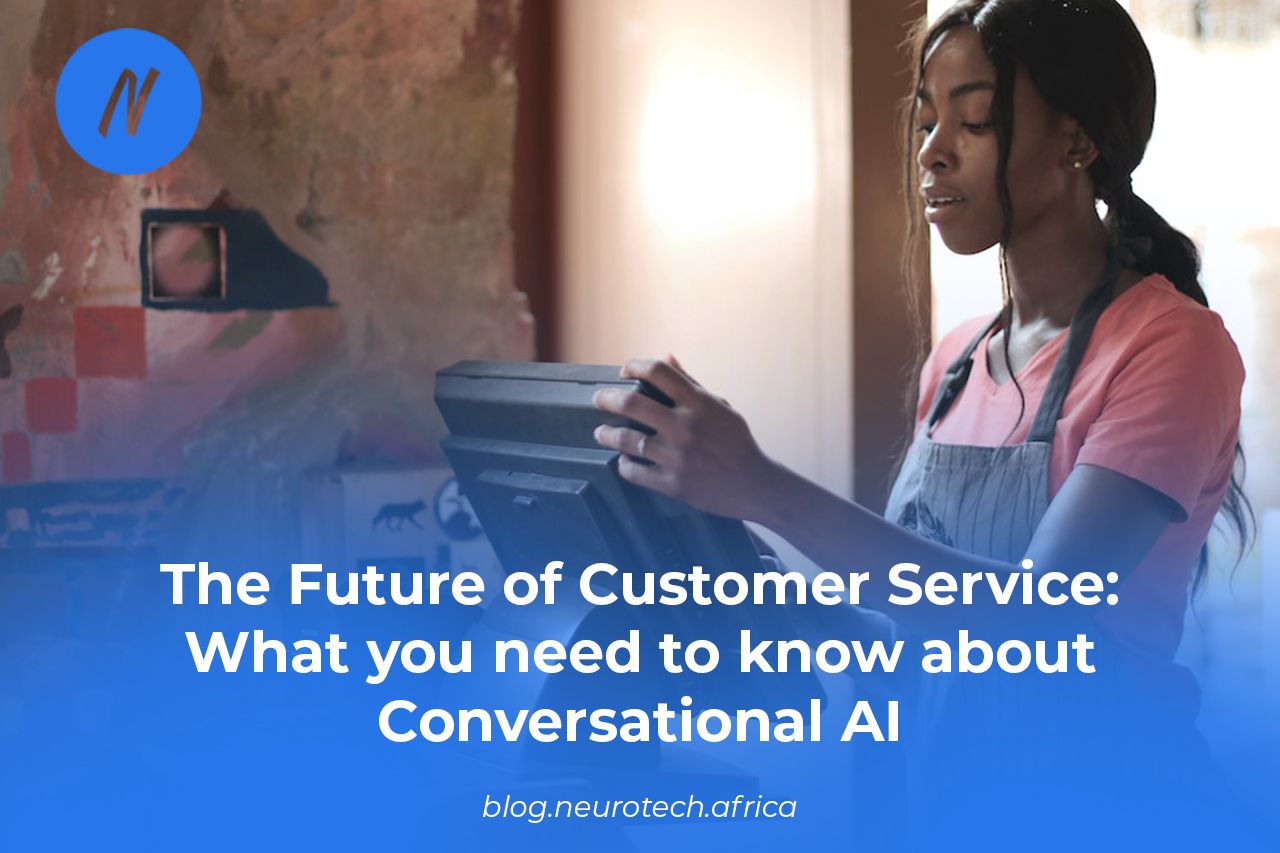The Future of Customer Service: What You Need to Know About Conversational AI
What do you need to know about conversational artificial intelligence?

Today’s consumers are more informed, connected, and intractable than ever before. As a result, brands that fail to meet their high standards face an uphill battle. 74% of consumers will not recommend a brand again after a negative experience. Moreover, 90% of customers expect to be able to communicate directly with a company through chat or messaging as if they were friends. Conversational AI has the potential to revolutionize the customer service experience by making it more personal and accessible for end users. This blog post breaks down the whys and hows of conversational AI in customer service, so keep reading to learn more.
About Conversational AI?
Conversational AI, also known as natural language processing, is the ability of machines to understand human language and respond accordingly. Natural language processing is key to implementing conversational interfaces or interfaces that allow people to communicate with computers through spoken language and written text as if they were having a conversation with another person. A conversational interface has two main parts - An automated system (e.g. an IVR or an SMS-based solution) that detects and responds to user inputs - and a natural language processor (NLP) that analyses and understands the user input. The NLP will then transform the input into a machine-readable format and then trigger an appropriate response from the system.

Why is Customer Service Important?
Customer service is a key aspect of any customer-facing business. It can be the difference between capturing a new customer and losing an existing one. It’s no wonder that the customer experience is the top priority for brands. According to a recent study, 69% of customers would pay more for a better experience. That’s why so many companies are turning to customer service AI. Customer service AI brings conversational interfaces, a technology that’s been around since the 1960s. More recently, it’s become increasingly important in the fields of commerce, health care, transportation, and more.
How will Conversational AI Change Customer Service?
The rise of human-machine communication will transform customer service in the following ways: -
- Increased accessibility: Human customer service will become more accessible to everyone thanks to the rise of AI-powered virtual assistants. Meanwhile, AI customer service agents will be able to handle more requests from more people simultaneously.
- Better quality of service: High-quality, personalized service delivered by AI agents will boost customer satisfaction and retention.
- Better customer satisfaction: Satisfied customers generate more revenue for businesses than unhappy customers. AI customer service agents can increase customer satisfaction across the board.
- Improved customer retention: Businesses can retain customers by providing an exceptional customer service experience. AI can help businesses do just that.
- Improved AI-human collaboration: Businesses will unlock new levels of productivity by bringing AI and human agents together.
- Better customer retention through personalized messaging: AI agents will be able to deliver highly personalized messages to customers.
Limitations of Conversational AI in Customer Service
While conversational AI is poised to revolutionize the customer service experience, there are some limitations that we must account for
- Customer expectations: Customers have high standards and will be disappointed if AI falls short of their expectations. -
- Data privacy and security: Businesses must protect the privacy of their customer's data. AI poses a particular concern in this regard, as hackers can use AI to take over machines and systems.
- Cultural shifts in customer service: AI may not be a good fit for every culture, and businesses may have to adjust their strategies accordingly.
- Human resources: The implementation of AI may mean fewer human agents, which may pose problems for businesses that depend on human customer service.
- Technical limitations: While the promise of AI is great, the technology is not yet advanced enough to meet all of our expectations.
- Shifting customer service strategies: Customer service strategies may shift in the coming years, rendering today’s AI technologies obsolete.
How to Achieve Success with Conversational AI in Customer Service
Success with conversational AI in customer service starts with a strategic plan for implementation. Companies should consider the following: -

- Defining the customer experience: Companies must define their customer experience strategy, including how AI agents fit into that strategy.
- Building a strategy for AI: Companies should decide what type of AI to implement and how that AI will work within their strategy.
- Hiring the right talent: Companies must hire the right people to implement their AI strategy. This includes both AI agents and human agents that will collaborate with them.
- Investing in the right technology: Companies must choose the right technology that supports their AI strategy.
- Testing and training: Companies must ensure that AI works as intended before launching it to customers. They must also train their human and AI agents to work together.
Final Thoughts
The future of customer service is bright, but businesses must act soon to take advantage of the benefits of conversational AI. Companies must prepare by defining their strategy, investing in the right technology, and hiring the right talent. They must also consider the limitations of AI and have a plan for overcoming them. Finally, businesses must act quickly before the benefits of conversational AI are claimed by others.

